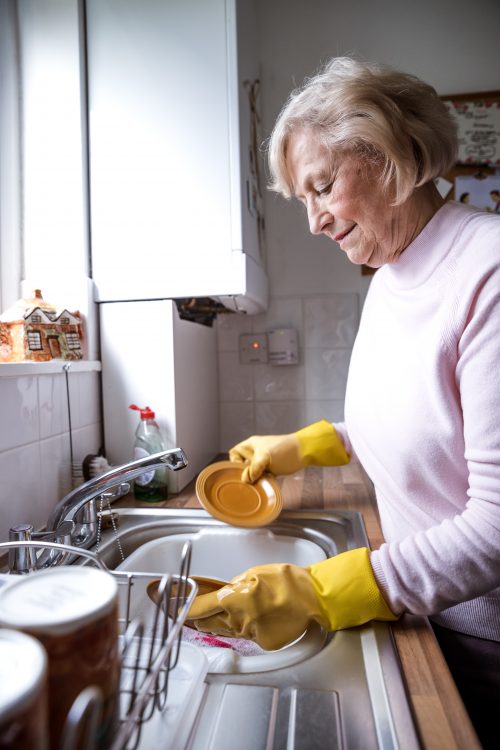Find the help you need

Caregiving is a lot. Don't try to go it alone.
Most working parents know they can't do it all. Even without a lot of extra money, tradeoffs are necessary, whether it's paying a babysitter or preschool in order to keep your own career on track or hiring a cleaning service to free up weekends for quality time.
As a caregiver, the same equation takes on even more importance. While your baby will eventually become more independent, the same is likely not true for your loved one. Instead, the demands on your time, energy and mental capacity often grow over time.
And that can lead to caregiver burnout. A recent survey found:
- 61 percent of female caregivers surveyed regularly find it difficult to sleep.
- 73 percent feel tired all of the time.
- 3 out of 5 say they can't find time to exercise.
Beyond improving your own health, hiring help can be essential for those who live far away from their loved ones, as well as for caregivers who also work. It can also help preserve your relationship as a daughter or partner (rather than as chore or task master).
It’s time to put down the guilt, let go of the “I’m the only one who can do it right” ego and figure out where to invest in services and support that will give you more time to focus on the things that matter most to you. Here's how to get started.
Step 1: Determine what help you need.
Common categories include:
- Personal care (bathing, eating, dressing, toileting, grooming)
- Household care (Cooking, cleaning, laundry, shopping)
- Emotional care (Companionship, meaningful activities, conversation)
Once you develop your list, get specific on what you want your attendant to do for you and your loved one. Write a job description that details the role and responsibilities you want. Starting with clear communication and mutual understanding from day one will serve you well in the long run.
Step 2: Set your budget.
For sure, hiring full-time care can be expensive. But consider hiring for just a few hours, once or twice a week, to start.
Think about the chores that zap most of your energy or take up a lot of your time. Invest in help with these. Remember, the idea is to free up time to focus on what matters to your loved one and you.
Step 3: Put out the word.
Talk to your loved one’s doctor and her staff, your friends and family, your local senior center or church to get a lead on trusted resources.
- Contact your local Area Agency on Aging to ask whom they work with often.
- Check with local nursing, home health aid and certified nursing assistant training programs for potential job seekers.
- Look online at sites like Senior LinkAge Line, AARP and Family Caregivers Alliance.
- Explore Blue Cross and Blue Shield of Minnesota's resource search tool powered by MinnesotaHelp.info.
Step 4: Do your homework.
Once you’ve zoned in on the services you need and the resource to tap, request a full list of services and fees as well as a list of references. This will give you the background you need before meeting in person to interview them.
In the end, hiring help can relieve you of some of the tasks you are responsible for, freeing you to have some time for yourself — to run errands, to get a checkup, to socialize with friends. Remember, self-care isn’t selfish. It may be just the support you need to offer the best long-term care for your loved one.
I'm also dealing with...
Community
Did you know that there are local agencies in every community to help you find the services you need?
Use the search feature, then input your zip code to find local help.
Two popular areas of need for caregivers:


